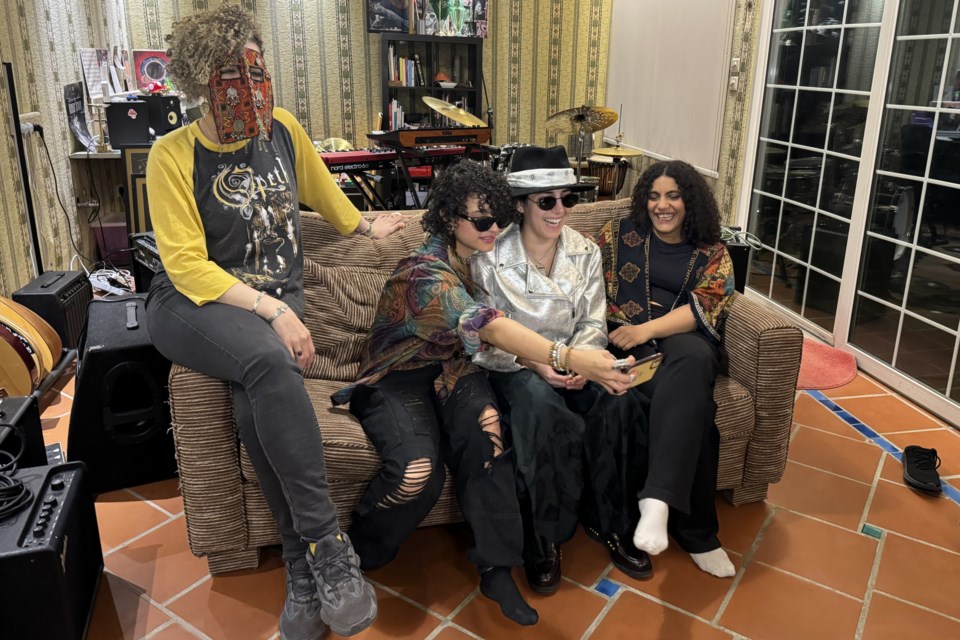RIYADH, Saudi Arabia (AP) — Leaning into the microphone in Saudi Arabia's capital, Nora let loose a primal scream. Guitars wailed and drums throbbed behind her as part of a set with her bandmates during a recent show.
The performance by Seera, an all-women psychedelic rock band that blends traditional Arabic melodies with the resurgent psychedelia of bands like Tame Impala, would have been unthinkable just years earlier in the kingdom.
But as Saudi Arabia liberalizes some aspects of its society, Seera represents the way women now are finding their voice and expressing themselves through the arts in a nation long associated with ultraconservative Islam and the strict separation of the sexes.
“We didn’t know how people would react,” said Meesh, the band's bassist, who like other members asked to be identified by their stage names. “We believe strongly in self-expression. To our surprise, they really had open arms for us.”
The band's name, Seera, can mean “life” or “biography” in Arabic. Band members say they try to embrace the multiple meanings one can draw from a word in the language in its sound, whether through the driving drums and cymbals or the synthesizer backing the guitars.
Seera’s music style revolves around the life experiences of the four-member band, who are all Saudi nationals. They sing in the Saudi dialect of Arabic, while drummer Thing wears a traditionally embroidered red face covering.
“I thought this would be great as a reflection of the culture, the heritage and the roots,” she said. “At the same time it would be a cool representation between the traditional and the modern and the expression of it. That's also within our sonic identity as well.”
Seera is quick to point out they aren't the first female band in the kingdom. Instead, they say that goes to The Accolade, which formed in 2008 and could only play underground. Things have changed radically in the kingdom in recent years since the accession of King Salman and his assertive son, Crown Prince Mohammed bin Salman.
In 2018, women gained the right to drive. Movie theaters and other entertainment centers opened. Women are no longer required to wear the fully cloaking black abaya.
Clear limits still remain on speech and any political activity in the tightly governed kingdom. But in the arts space, Saudi Arabia is slowly opening up, as could be seen by Seera's show earlier this month at The Warehouse, a live music space in Riyadh's Diriyah neighborhood.
There, dozens of youths in leather jackets and black rock T-shirts swayed and danced to the music. One young man with heavy eyeliner wore a shirt declaring: “I HATE LIFE.” The fashion choices resembled any other punk show at a club in the West, though there was an absence of smoking or any alcohol in the dry kingdom.
“Things have become definitely better, more towards inclusivity and in a broader perspective and in a broader way,” Thing said. “There’s definitely room for more growth."
Seera plans to release their debut album later this year. They've also booked their first international concert in Dubai, where they'll get their first chance to perform outside of Saudi Arabia.
Nora said she wanted the band to be “an inspiration for the younger generation" to express themselves.
“It’s OK to look, act, behave the way you want as long as you’re not harming anyone,” she said.
Baraa Anwer, The Associated Press



